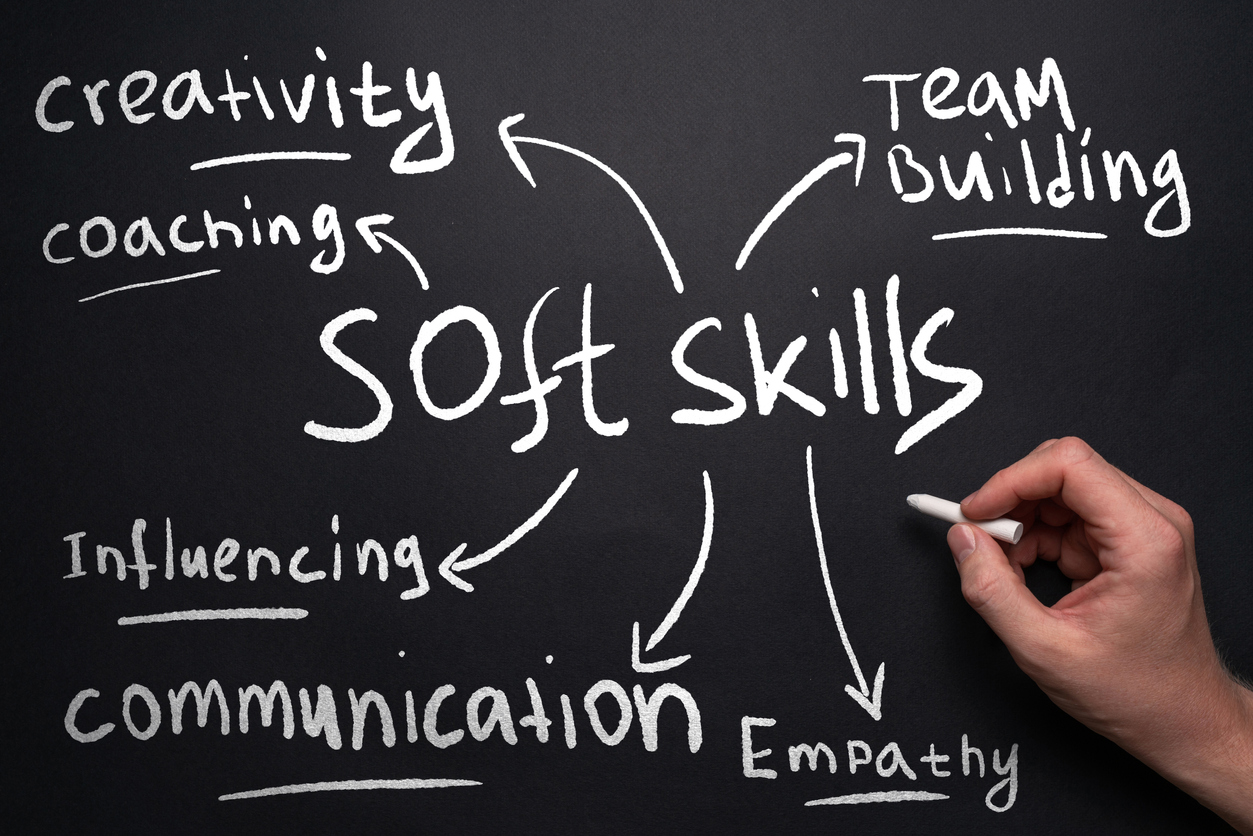Why ‘soft skills’ in PR are anything but
Here’s a look at some of the skills that can make or break a PR career.

At our agency, we have been very focused lately on the importance of what many call “soft skills” as they relate to business growth.
In the world we are living in today, these so-called “softer” traits — including kindness, empathy, humility, adaptability — make hard sense when it comes to effective communications. Liz Kaplow (Founder and CEO of Kaplow Communications) and I sat down to discuss the growing importance of these crucial, yet underappreciated skills and how they are the hidden secret to business growth.
Randi Liodice: Why do you believe soft skills are more important today than ever before?
Liz Kaplow: Leaders who have a command of these skills receive tremendous payoff: they inspire collective trust from their teams who are then empowered to deliver strong results.
These are all capabilities that historically have been thought of as secondary to operational, financial or business-building skills. Yet today, to move and sell product, to increase your bottom line — leaders need a tremendous amount of listening energy and consensus to be efficient and effective.
Success metrics in leadership may need a rebranding. Once thought of as a detriment to an executive’s ability to lead, “soft skills” are now what build authenticity, trust and loyalty. That’s not to say that hard metrics don’t matter, but growth is truly achieved when we take a holistic approach.
Liodice: How can “soft skills” impact our work environment?
Kaplow: Our agency’s guiding principle of TREE (trust, respect, energy, enthusiasm) came about many years ago. At the time, I sensed a lack of cohesiveness from the group. So being able to call on those traits that TREE stands for, gave us a strong foundation. It also opened up a space for debate, which I always encourage.
And when we shifted the culture inside Kaplow, we saw growth not only in our people but in the business itself. The interesting thing is these skills aren’t traditionally taught in business school, yet they have become a touchstone toward expansion, inspiring people by giving their jobs further meaning.
Liodice: Why are soft skills more important today than they ever have been before within the context of business growth and development?
Kaplow: During the pandemic, we saw brands fully understand the importance of how humanity, transparency, and humility moved their companies forward. We were all going through a collective trauma, so as an agency, we became both the communicator and the audience.
It allowed us to gain empathy. We took a step back and put ourselves in the audience’s shoes, asking ourselves as consumers: “What is it we would want or even need to hear at this point in our lives?”
We worked with brands to strengthen their story, showcasing that they are far more than the services they offer. When executives communicate through stories, that’s when human connections are made. It endears them to the workforce because everyone feels they’re a part of something bigger. It’s been an organic shift. Brands understand that it’s the people as a whole, rather than the business plan alone that drives the company forward.
Liodice: Why do you believe active listening is one of the most critically undervalued skills today?
Kaplow: Especially now when so many meetings have shifted to video calls, we need what I call a “seventh sense” that helps us understand each other.
Pre-pandemic, I was in an auditorium listening to a CEO talk and because I have a habit of nodding my head when something resonates, afterward he came over and thanked me for giving him feedback through my response. It made me realize people pick up on our cues that show we’re actively engaged in what they have to say. On a video conference call, it’s much harder to get this across, yet it’s crucial to help people feel not only heard, but also know that their ideas matter.
Asking questions keeps the energy up and translates excitement and interest to the person on the other side of the screen. We need to value this skill as it is foundational to keeping people engaged and building business momentum.
Liodice: We were given no choice but to adapt during the pandemic. How does this impact the next generation of professionals?
Kaplow: I believe the pandemic elevated the need for people at all levels to be strong communicators. We all need to adopt a more empathetic style, one that can also help bridge generations.
Executives at every level are showing their human side, accelerating creativity and new ideas. We recently started an internal Kaplow mentorship program to help employees reconnect to each other and learn from those they may not get to work with on a daily basis.
The program is about reengaging with the workplace today and welcoming new perspectives. Mentoring is critically important to build ongoing lifelong relationships, which are crucial in business. Especially today, mentors who can keep it real, showing vulnerability through their humanity, will have a major and lasting impact. What could be more crucial to building the bottom line?
Randi Liodice is president and chief strategy officer at Kaplow Communications. Liz Kaplow Founder & CEO at Kaplow Communications.






